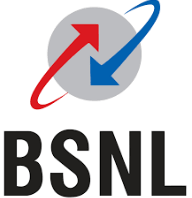 BSNL JAO Question Pattern and Syllabus Junior Accounts Officers Papers 2020.
BSNL JAO Question Pattern and Syllabus Junior Accounts Officers Papers 2020.
——–Part I–Time 3 hour————Objective type
General English- 100 Marks
General Aptitud e/Awareness- 50 marks
——–Part II–Time 3 hour————Objective type
Financial Management / Cost Accounting / Tax and Commercial Laws- 300 Marks
SYLLABUS
Paper –I : General English & General Aptitude/Awareness:
a) General English:
Comprehension of given passages and Grammar, usage and vocabulary.
b) General Aptitude/Awareness :
Current events of national and international importance: Indian polity & economy; General Mental ability; Test of reasoning & Quantitative Technique.
Paper-II : Financial and Commercial Accounts
I) Advanced Accounting:
1. Company Accounts introduction; shares & debentures etc.
2. Company Accounts; final Accounts
3. Cash and fund flow statements
II) Auditing
- Nature, objective and basic principles of auditing
- Techniques of auditing physical verification, examination of documents and vouching, direct confirmation, analytical review.
- Planning and audit, audit programmes, working papers, audit process
- Valuation of internal controls.
- Various types of Audit.
III) Financial Management – an over view:
- Goals of Financial Management.
- Key activities of Financial Management.
- Relationship of Finance to Accounting and Audit
- Organisation of Finance Function.
IV) Financial Statements:
- Basic concepts underlying accounting.
- Balance Sheet
- Profit and Loss Accounts
- Source and usage of final statements
- Financial topics related to balances received and profit and loss accounts
- Analysing financial performance
- Financial ratios
- Applications of financial analysis
- Problems in financial statements and analysis
- Break-even analysis and leverages.
V) Financial Management in Public Sector Enterprises:
- Capital Budgeting
- Long term financing
- Working Capital Management
- Memorandum of Understanding
- Financial Management & Control
VI) Bare Acts:
- Company’s Act 1956 (with amendments)
- Contract Act.
- Partnership Act
- Payment of Gratuity Act.
- Consumer Protection Act.
- Industrial Dispute Act.
- Sales Tax Act.
- Payment of Bonus Act
Please check updates during notification
Similar Pages..
- BSNL JAO Exam 2023 All details
- BSNL JAO Question Pattern and Syllabus
- BSNL JAO Model Paper
- BSNL JAO Aptitude Question Paper
- BSNL JAO Question Paper Study Materials.
See Also……
